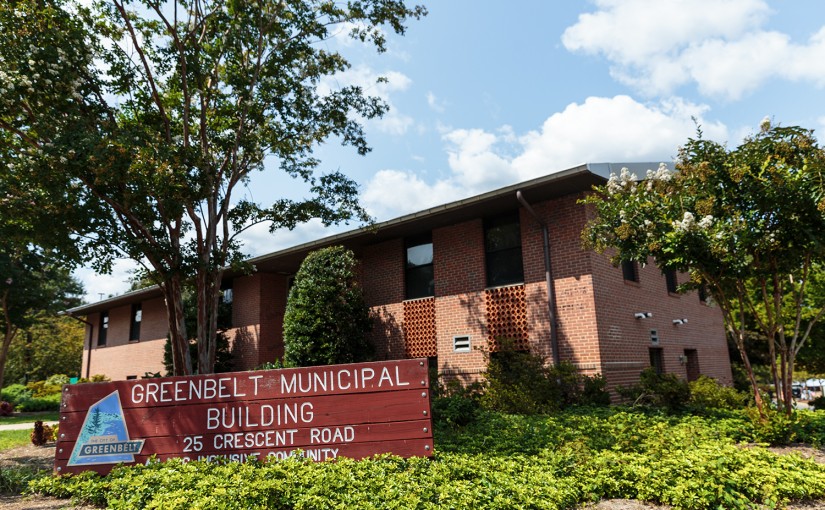Amid concerns about how a citizenship question could impact response rates, Greenbelt will establish a committee to encourage participation in the 2020 census.
The U.S. Commerce Department announced late last month that the census, which occurs once a decade, will contain a question on citizenship for the first time since 1950.
The department said the question will provide more accurate data on voting-aged citizens that is necessary to protect minorities through the Voting Rights Act, which prohibits racial discrimination in voting laws.
In response, the Greenbelt City Council unanimously decided to implement a multi-step plan for the city — the first phase of which included sending a letter to Commerce Secretary Wilbur Ross stating the council “strongly opposes and objects” to the question being added, said Greenbelt Mayor Pro Tem Judith Davis.
[Read more: A UMD alumnus was just elected to the Greenbelt City Council]
It also established a committee, which will work to inform city residents of when the census is approaching, how they can respond and why it’s important to participate, Davis said.
The city’s manager and its community relations advisory board will begin appointing committee members at the beginning of next year, she said, adding that Greenbelt had a similar committee ahead of the 2000 census.
Davis said such a question could be a barrier for participation, especially among households containing undocumented immigrants or DREAMers, who may hesitate to divulge information about their citizenship for fear that it could be used against them.
“We do have immigrants, that are legal and probably undocumented as well, and that puts a great deal of pressure on them if they are filling out this card,” Davis said. “Even though these are supposed to be secret and confidential, how many people today actually trust the government?”
As of 2015, Greenbelt is home to 23,827 people, 81.4 percent of which are citizens, according to Data USA.
Davis, who attended a work session on the census with the National League of Cities in March, raised the issue with the council during its March 26 meeting. She noted that an accurate count is imperative to ensure Greenbelt receives adequate funding for services such as its police department, roads and schools, as well as helping determine local and congressional districts.
Earlier this month, Maryland joined 16 other states and Washington, D.C., in suing the Trump administration to block the citizenship question from the 2020 census due to similar concerns.
“You need to have an accurate count,” Davis said. “Otherwise, you’re gonna get shortchanged.”
[Read more: College Park City Council considers redistricting before 2020 census]
The committee will also notify the community of opportunities to serve as paid census takers — data collectors — and set up public sites for people to fill out the census online.
“There are places and homes that don’t have internet, so we have to be sure people have access to this,” said Davis.
Brian Egan, principal associate for finance, administration and intergovernmental relations at the National League of Cities, said the league opposes the citizenship question because it’s impossible to determine how it may affect final counts. He added that it’s widely questioned if the change will lower participation among hard-to-count communities, specifically immigrants.
The question will also affect census costs, Egan said, because more resources will be needed to follow up with non-response communities.
“There’s not much of a justifiable reason for why this question needs to be added in the first place,” Egan said.
A Commerce Department spokesperson wrote in an email that Secretary Ross carefully considered how the reinstatement of the citizenship question might depress response rates and lead to less accurate responses.
“Secretary Ross found that the need for accurate citizenship data and the limited burden that the reinstatement of the citizenship question would impose outweigh fears about a potentially lower response rate,” the spokesperson wrote.
The spokesperson added that the Census Bureau is designing a “robust” outreach effort to encourage the public to participate in the census. This includes engaging with local communities, offering materials in more than a dozen languages and spending more than $480 million in marketing and advertising, up from $376 million in 2010, he wrote.
Egan said about 100 local elected officials and city staff from around the country attended a March 13 conference on the census, and that their primary message was that they should prioritize accuracy.
The league encouraged city leaders to establish “complete count committees,” and encourage census participation, especially if it included a question on citizenship.
“We have to live with these numbers for 10 years,” Egan said. “We only have one chance to get these numbers right, and that’s why we object to throwing a wrench into the system this late in the game.”



